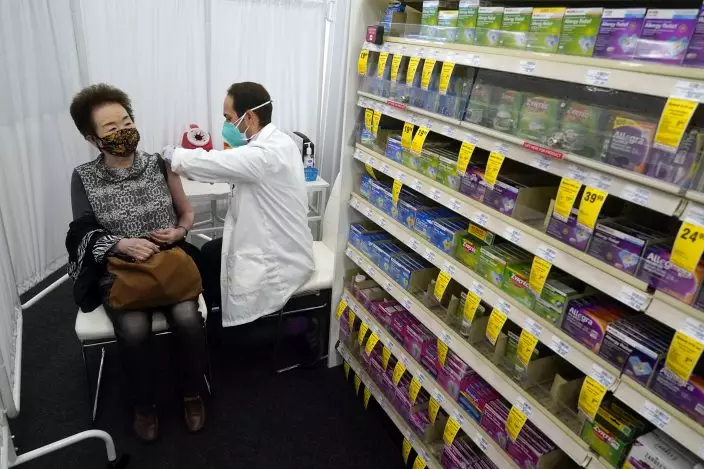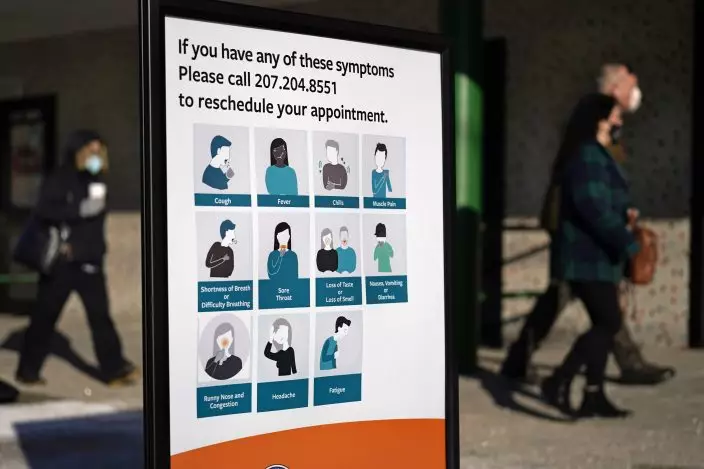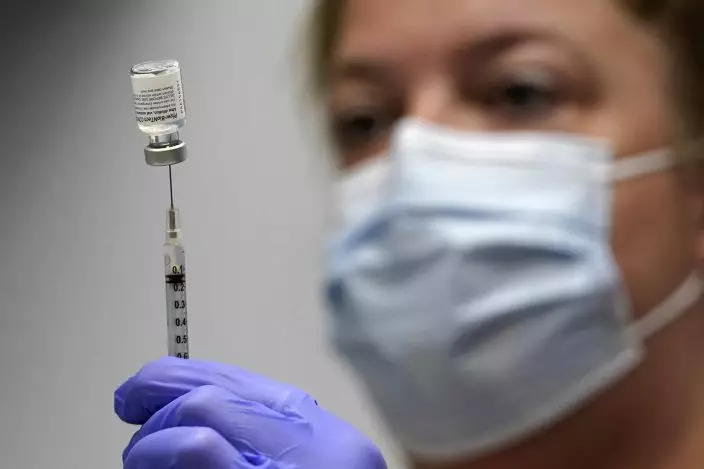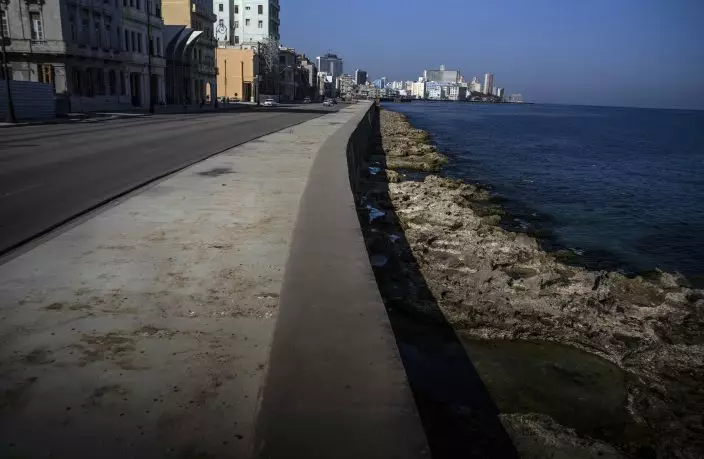Here's what's happening Tuesday with the coronavirus pandemic in the U.S.:
THREE THINGS TO KNOW TODAY:
— Drugmaker Merck & Co. will help produce rival Johnson & Johnson’s newly approved coronavirus vaccine to try to expand supply more quickly.

Pharmacist Todd Gharibian, right, administers a dose of the Moderna COVID-19 vaccine to Toshiko Sugiyama, left, at a CVS Pharmacy branch Monday, March 1, 2021, in Los Angeles. (AP PhotoMarcio Jose Sanchez)
— Democrats are sorting through lingering disagreements over emergency jobless benefits and other issues and preparing to commence Senate debate on a $1.9 trillion COVID-19 relief plan.
— A leader of the U.N.-backed project to deploy COVID-19 vaccines to the needy in both rich and poor countries acknowledges the rollout has gone slower than expected in some places because of issues with shipping and approval, but says “ultimately” all doses will be made available.
THE NUMBERS:

A sign lists symptoms that would require a rescheduled appointment at a COVID-19 mass vaccination site, Tuesday, March 2, 2021, at the Portland Expo in Portland, Maine. (AP PhotoRobert F. Bukaty)
CASES: According to data through March 1 from Johns Hopkins University, the seven-day rolling average for daily new cases in the U.S. dropped from 85,813.9 on Feb. 15 to 67,760.3 on Monday.
DEATHS: According to data through March 1 from Johns Hopkins University, the seven-day rolling average for daily new deaths in the U.S. went from 2,361.9 on Feb. 15 to 2,046.1 on Monday.
POSITIVITY RATE: According to data through March 1 from the COVID Tracking Project, the seven-day rolling positivity rate for testing in the U.S. went from 5.6 on Feb. 15 to 4.4 on Monday.

Hollie Maloney, a pharmacy technician, loads a syringe with Pfizer's COVID-19 vaccine, Tuesday, March 2, 2021, at the Portland Expo in Portland, Maine. The Expo location, operated by Northern Light Health, is one of two mass vaccination sites that opened in Maine this week. (AP PhotoRobert F. Bukaty)
VACCINES: 51.7 million people, or 15.6% of the U.S. population, have received at least one dose of a coronavirus vaccine, according to the CDC, while 26.1 million people have completed their vaccination, or 7.9% of the population.
QUOTABLE: "It was allowing them to feel like it was OK to admit our sadness in this moment.” — Artist Kristina Libby , who started the Floral Heart Project to give the survivors of COVID-19 victims places to mourn.
ON THE HORIZON: The Caribbean is hunting for visitors and vaccines as it seeks to jump-start the stalled economy of one of the world’s most tourism-dependent regions. Clear waters and warm sand had attracted a record 31.5 million tourists to the region in 2019. But visits plummeted by an estimated 60% to 80% last year. Local governments are turning to India and China for vaccines to make it safe to welcome back tourists without prompting a spike in COVID-19 cases that could overwhelm their fragile health care systems.

A view of the malecon completely empty of tourists in Havana, Cuba, March 2, 2021. The Caribbean is hunting for visitors to jump-start the stalled economy in one of the world’s most tourism-dependent regions (AP PhotoRamon Espinosa)
Find AP’s full coverage of the coronavirus pandemic at https://apnews.com/hub/coronavirus-pandemic


